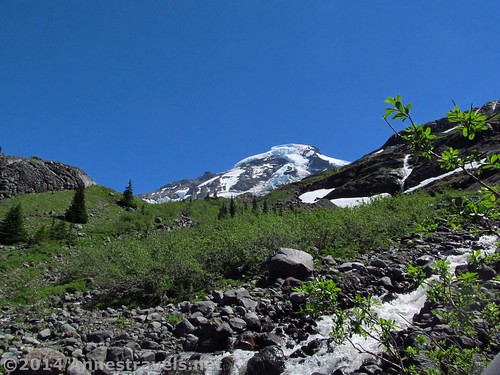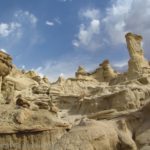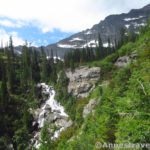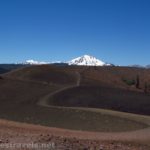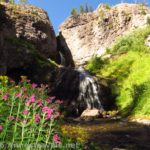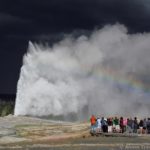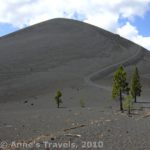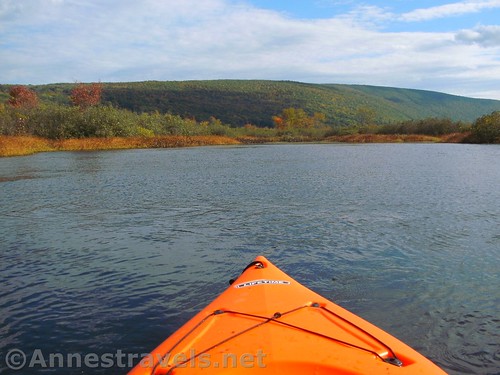
Kayaking on Honeoye Lake, New York
The wilderness gives us an opportunity to learn to trust God, to trust others, and to trust ourselves. Last week, I wrote about my own crisis of trust on Mt. Agassiz. Sometimes we find the healing of former distrustful situations by having to face it again. In general, we must face our trust or lack of trust when we venture out into the wilderness.
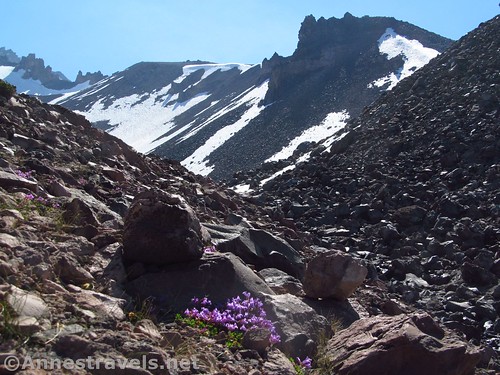
Flowers in Hidden Valley, Shasta-Trinity National Forest, California
Out on the trail, our defenses are much less. We don’t have the padding we place around ourselves in the comfort of our normal daily situations – for example, money and houses don’t help when you’re facing hypothermia alone 10 miles from the trailhead. And so, instead of trusting in our padding, we must trust in something else.

Lake Ann Trail, Mount Baker-Snoqualmie National Forest, Washington
Perhaps the first person we have to come to trust is ourselves: that we really can hike this path, get to our destination. If you’re constantly second-guessing yourself, it’s a sign of distrust, and it’s unlikely you’ll actually make it to the place where you’re going, in life or on the trail.
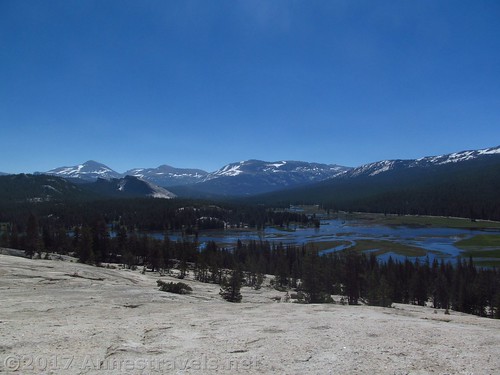
On Pothole Dome, overlooking Tolumne Meadows, Yosemite National Park, California
God will bring us to the place where we can trust ourselves – not trust in ourselves; we’re trusting in Him. But trusting ourselves that we are fearfully and wonderfully made and that He loves us, and because of the fact that He loves us, we can do all things through Christ Who gives us strength (Psalm 139:14; Philippians 4:13).
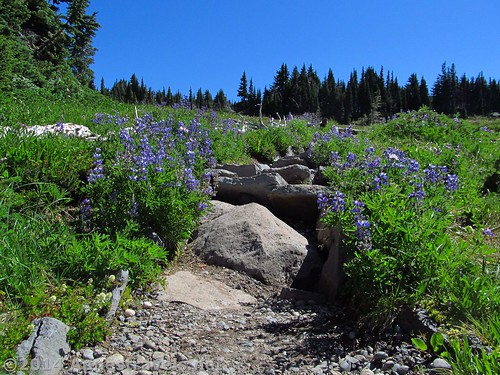
Purple flowers in Spray Park, Mt. Rainier National Park, Washington
Nor is it an overconfidence. I’m sure we’ve all heard stories about people who were so confident that the facts were nice suggestions at best – Proverbs has some choice words to say about these “fools”. The trust of ourselves that God gives is more a confidence in Him than that we are invisible.
Often, to get us to that place of trust, God will give us companions. Sometimes they believe in us – “You can do it!” Other times, they are there more to help us over the “hump” of the new and different – for example, a veteran backpacker taking a hike with someone who has never stayed overnight anywhere but inside a building. Our companions can give us confidence, companionship, and a host of necessary information and advice that just might come in handy someday.
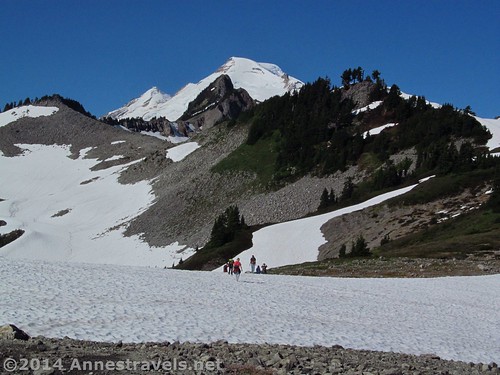
Following my group down a snowfield on the Ptarmigan Ridge Trail, Mt. Baker-Snoqualmie National Forest, Washington
Trust of ourselves and trust in our companions are good, even necessary. I have personally faced times where I was trusting one of my hiking companions to not only get us to our destination, but also to find the trail covered by feet of snow, and then to get us back to the van in one piece. That’s a lot of trust.
But beyond both of these trusts is trusting in God. It holds the other two together; it’s the basis for trusting ourselves and our companions. Part of why I trusted the person in the above example is because he trusts God implicitly, and so my trust in him is based on trust in God, as well. Trusting myself to be able to hike a mountain is in part based on the fact that I know God has called me to climb mountains. I trust Him to get me up and down the mountains.
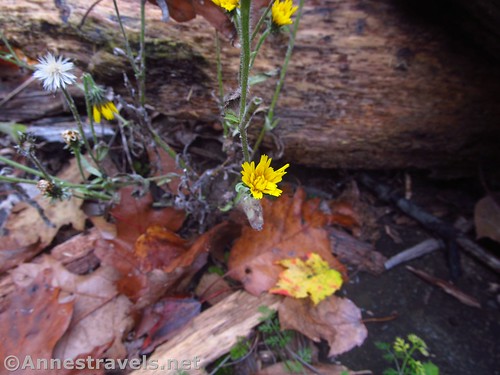
Wildflowers in Harriet Hollister Spenser State Park, New York
Trust is born not only with a choice – though that’s helpful – but also through experience and relationship. We’ll talk more about that next time.

